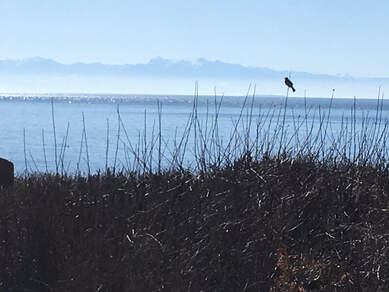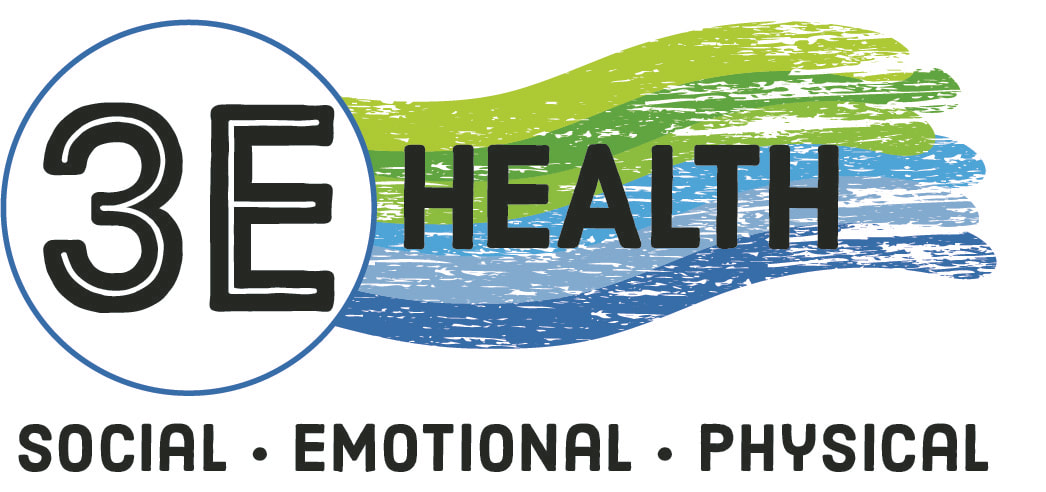|
By Karen Janzen Like many people, I struggled with a significant fear of failure growing up. So much so that as I look back on my extended adolescence, I see that my life was paralyzed by my fear of doing things the ‘wrong’ way; making the ‘wrong’ choices… choices that were predicted to bring me pain and shame because they weren’t bulletproof for success. As a result I tended NOT to make choices (which is also a choice… and a symptom of anxiety) and I often became a bystander instead of doing what we were meant to do: engage in life with all we have to offer. Now that I’m a parent, I understand that this came from my perception of the caring adults in my life trying to protect me from pain and grief. And while I also feel that natural pull to insulate my child, I’ve discovered that true growth and resilience will never have a chance to manifest without learning to engage with our discomfort. Nowadays, we sometimes refer to insulating kids as ‘ preparing the path for the child’, which seems to be correlated with increased anxiety, depression, and lack of connectivity of almost every kind, except digital. What many of us know we really want to do (but aren’t sure how to proceed) is to prepare the child for the path. When we empower the child to be aware of the message discomfort is giving, how to learn from mistakes (mis-takes… take 1… take 2), we’re actually facilitating growth, and engaging transformation. In fact pain and mistakes, what shame-researcher Brene Brown calls ‘vulnerability’, are the keys to social, emotional and physical growth. If we aren’t able to show our true selves, at least partly, to our inner circle, we are likely to have weak attachment which can lead to higher rates of anxiety, dysfunction, and lack of fulfillment. If we aren’t able to name, own, and share our own emotions, we end up missing life’s key directional messages AND we end up numbed out (disconnected), potentially dependent on whatever we use to numb (drugs, media, sugar, busyness, etc), also leading to dysfunction and lack of fulfillment. Even our bodies work on this general concept, in that the only way to build new muscle is to tear the existing muscle (making it vulnerable, often causing mild pain) to build a transformed muscle that is stronger and better. This thing of being able to develop, or transform, because of, or in spite of, one’s mistakes, is what we call resilience. I remember the first conversation I ever had about resilience. I was experiencing anxiety over choosing my dream career of being a youth worker in what was deemed as one of America’s most dangerous neighborhoods, versus making the ‘right’ (perceived worthy) choice of an established safer career. As I expressed my angst to an inspirational friend, he reassured me I could find happiness/worthiness regardless of any one of my single choices because I showed significant resilience, and with that I’d always bounce back. I asked him what that meant. He said, “Resilience is not about how much you get sick or knocked down. It’s about your capacity to recover. Sickness and failure are going to happen in life. Resilience is when you don’t stay sick. When you don’t stay stuck in the failure. You just need to connect with the things and people that heal you, and you recover very quickly.”  3E Health is about experiencing this kind of robust resilience. It’s about preparing the person for the path; teaching the person how to connect with life experiences (a vulnerable place to be). It’s about when adversity hits us, physically, socially, and emotionally, we’re able to manage our growth, maintaining connection to a life that means something to us (which is also what we call spirituality). For the record, I’m now a divorced, solo parent to a special needs child, doing the health promotion that I love on a modest income. It’s often a challenging life that I wouldn’t necessarily recommend. But it’s a robust, resilient life that is drenched in meaning and connected experiences, glistening in love for my child, others, the world around me, and ultimately myself. And perhaps learning to love ourselves is the biggest growth of all. References: Brene Brown "The Power of Vulnerability" June 2010. Retrieved from https://www.ted.com/talks/brene_brown_on_vulnerability?language=en
4 Comments
Robin Speed
9/14/2019 09:15:39 pm
Thank you and Chad for embracing this work, and to you for sharing your words, warmth, and insights. I look forward to reading more: I feel I have much to learn from you.
Reply
9/15/2019 03:39:14 pm
I too am looking forward to learning from this important work!💌
Reply
9/15/2019 03:37:13 pm
I am so touched by your thoughtful story and eager to learn more from your collective work. Yesterday I had the amazing experience of having lunch in Sidney BC with Pierce Howard and his wife Jane. They taught an intensive one-week (14 hours a day, no kidding - 8am-4pm & 6pm-11pm) graduate course that I took 22 years ago. We had Pierce give workshops & a keynote address during a Langley conference right after he published The Owner’s Manual for the Brain. He has written four editions of that book & went on to write The Owner’s Manual for Happiness. Yesterday in conversation he mentioned that happiness actually comes from steps in the journey in whatever you are working on. He also mentioned a must-read, Women’s Ways of Knowing. Your writing about your upbringing struck a chord. The book apparently talks about that. I ordered a copy & plan to read both The Owner’s Manual for Happiness & Women’s Ways if Knowing very soon. I am so excited about your work. Congratulations👏🎉💫
Reply
Leave a Reply. |
Chad Oatway &
|

 RSS Feed
RSS Feed
